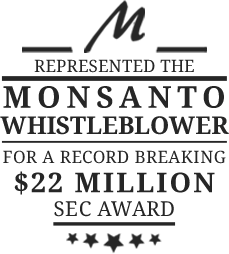How Undisclosed Corporate Conflicts of Interest Harm Investors
When a corporation, stockbroker, or investment firm does business despite conflicts of interest, there is always someone who loses. A conflict of interest occurs when an individual makes investment decisions at the expense of another investor or previous obligation in order to serve their own needs.
As you can imagine, these conflicts of interest put the public, investors, financial markets, and the overall economy in jeopardy. Below, we discuss some of the most commonly seen types of conflicting interests, and what you should do if you have reason to believe that an individual or corporation has failed to disclose a corporate conflict of interest.
Examples of Conflicts of Interest in Financial Markets
It can be difficult to recognize conflicts of interest in the financial world. Many individuals claim to be ethical but actively participate in investment schemes or conflicts of interest when they’ve been pressured to do so by corporate executives or simply because everyone else is doing it.
In any case, some types of conflicts of interest happen far more frequently than others, some of which include the following:
- Valuation
- Investment advisor affiliations with stockbrokers
- Exchange conflicts
- Incentives conflicts
- Portfolio management conflicts
- Compensation-related conflicts
The true problem is when these conflicts of interest are not disclosed to the proper authorities, whether that be management, investors, or the public.
These non-disclosures are not only frowned upon, but are considered violations of the U.S. Securities and Exchange Commission (SEC). As such, those who engage in these behaviors can be sanctioned and brought to justice by the SEC and whistleblowers who are willing to risk it all to come forward.
What to Do if You Suspect Undisclosed Conflicts of Interest
When you suspect that a company or broker has an undisclosed conflict of interest, there are steps you can take to protect your fellow employees and investors.
First, you have the option of reporting the information you have to your company’s internal compliance program. This will give your employer the opportunity to investigate the alleged violation and take necessary action. However, many individuals have concerns that they will be retaliated against if they come forward.
If this is the case for you, you can reach out to a regarded SEC whistleblower lawyer and report your tip to the SEC anonymously. When you do, if you’ve met specific criteria, you may even be able to win an award for the risks you took in reporting the undisclosed conflicts of interest.
Reach Out to an SEC Whistleblower Lawyer
For assistance in tipping off the SEC about possible securities violations you’ve become aware of, including corporate conflicts of interest that haven’t been appropriately disclosed, get in touch with an experienced SEC whistleblower lawyer at Meissner Associates as soon as possible.
We are proud to provide free tip evaluations to would-be whistleblowers across the country. You can claim yours today by giving our firm a call at 1-866-764-3100 or by completing the confidential contact form at the bottom of this page.









